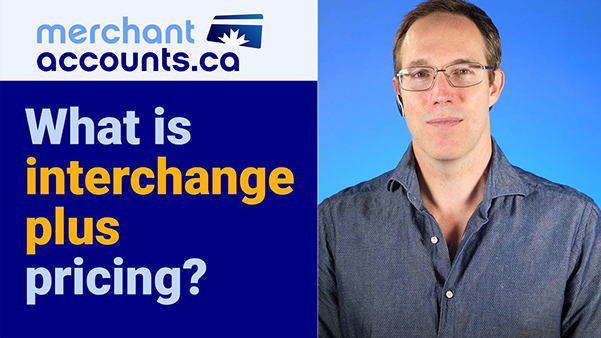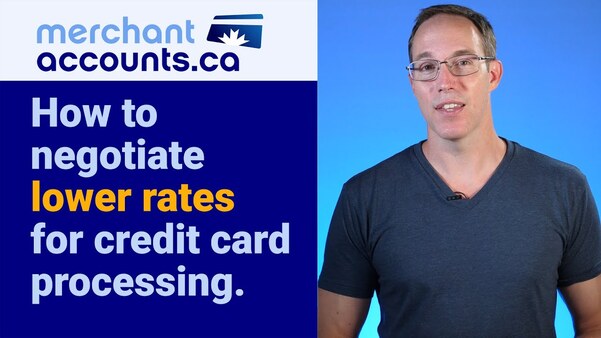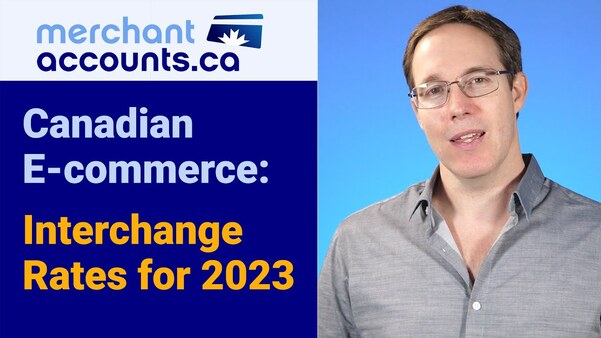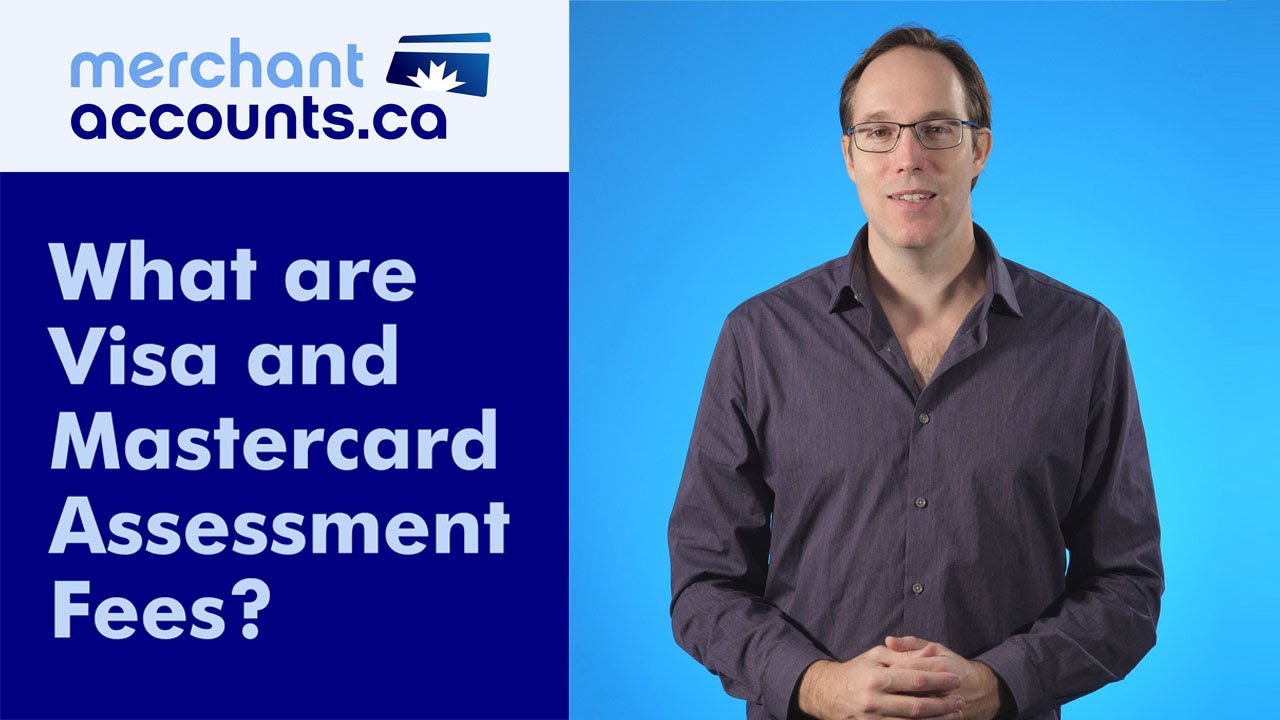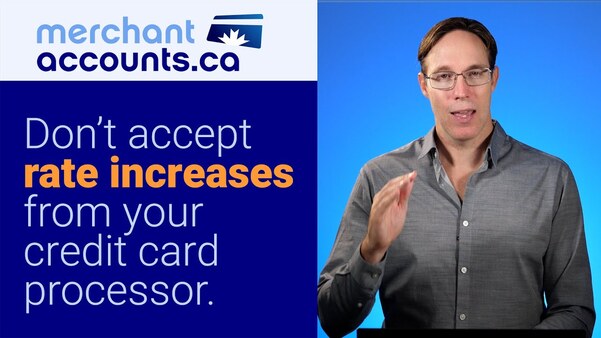What is Interchange and why is it important?
June 14, 2011
by David Goodale
What is Interchange?
When you process a credit card transaction, a percentage of that transaction is retained by your credit card processor as their service fee for processing that transaction. This is often called the discount rate. If you currently process credit cards then you are likely already familiar with this fee.
What you may not have realized or considered before is that when your processor processed that transaction for you, they incurred a fee from Visa or MasterCard in order to do so. Not all of the fees collected go to the processor. In fact, a large portion of the discount rate fee collected will go to Visa and MasterCard, which is then passed onto the card issuing bank (the bank that provided the credit card to the customer).
With this in mind, you will understand that Visa and MasterCard must be paid by the processor every time a credit card transaction is processed. This fee is called "Interchange" rate. The interchange rate varies depending upon a few different criteria, primarily the type of credit card used, and the location of the cardholder (or more specifically if the card was issued by a Canadian or a non-Canadian bank).
The interchange fee structure that Visa and MasterCard charge is the exact same to every processor in Canada. By making sure that each processor receives the exact same cost structure it ensures a fair and even playing field in the credit card payments industry.
While the concept of interchange can be a bit confusing, just remember that when you hear the word "Interchange" it means the exact true cost to the processor that is charged by Visa or MasterCard every time a credit card transaction is processed.
Why is Interchange Important?
In a perfect world, merchant account pricing would be clear and easy to understand. (I will take this moment to gratuitously point out that Merchant Accounts.ca has one of the best reputations in the industry for clear and honest pricing). With this said, there are criteria beyond the control of a processor that will impact pricing.
Visa and MasterCard charge different interchange rates for different types of credit cards, and a credit card processor cannot stop Visa or MasterCard from doing this. If you want to make sure you fully understand merchant industry pricing then you must have at least a basic grasp of interchange.
The reason why should be clear: if you have a pile of quotes in front of you, and are working through them to try to figure out which one is best, if you don't understand what will cause the interchange rate to fluctuate and go up then you will not be able to understand when additional fees may be incurred. In particular, you will not be able to find markups or other pricing tricks that some of the less scrupulous processors can hide in plain sight inside a quote. Having a good understanding of interchange will arm you with the tools you need in order to make an informed and educated decision when choosing your processor.
Tell Me How Interchange Works!
The key thing to understand is that interchange fluctuates. If someone submits payment using a premium card like an airmiles card (or most other cards with a special benefit for the cardholder) then the interchange rate will go up. It will also go up if a corporate credit card is used, or if a foreign credit card is used (a credit card issued by a non-Canadian bank).
There are also other criteria that can cause the interchange rate to fluctuate. For example, a transaction in which the card is physically present (like in a store at a cash register) will qualify for a lower interchange rate than if the card is not present (like in an e-commerce transaction). We will explore the actual cost associated with interchange a bit further down in this article, but we should first discuss an example of how not being aware of interchange can cause you to incur extra charges.
Learn From Other People's Mistakes. Take This Example for Instance...
The last point in the above paragraph (a POS transaction in comparison to a transaction where the card is not physically present) warrants a side note and will provide a perfect example of how a merchant can be taken advantage of if they do not understand interchange:
We often receive calls from merchants asking about POS machines. When we ask the merchant how they are taking their sales it often turns out that they are actually taking all of their orders over the telephone. (In which case the merchant would key the credit card details manually into the POS machine).
This is a common situation in which if the merchant was working with a less scrupulous processor, they could have been setup to incur a higher discount rate than necessary. It works like this -- a merchant is sold a POS machine. POS based merchants are usually expected to swipe a credit card (collect magnetic stripe data) or use the chip reader and collect the pin number by the cardholder. If the card isn't swiped or a PIN number isn't collected, then the interchange rate will fluctuate. If this happens some processors will add a large markup to the discount rate for that sale.
I see this quite often. A prospective client will call and ask for a quote. I get them to send in their current processing statement and break down their existing charges. I often see that the merchant is paying a surcharge to their current processor because they are not swiping the cards. I can spot this fairly quickly on a statement. About 80% of the time when I point it out to the merchant, it turns out that they had no idea this surcharge was occurring. I then ask if they had told their current processor (way back when they originally setup their account with them) that they would be keying their transactions. The merchant often responds in the affirmative, that yes, they did in fact tell their processor that all sales would be keyed in. Unfortunately, it happens far too often that some processors will setup a merchant so that they will incur a surcharge for keyed transactions, even if the processor is perfectly aware ahead of time that all of the merchants sales will be keyed in. In this example the merchant should absolutely not have been penalized just because they were keying in transactions. They should have been setup and quoted as a card not present (e-commerce) type of merchant. In an example like this the merchant is not getting what they expected, and is a classic case of misleading pricing.
How to Avoid the Problem
What should have been done (and what we always do at Merchant Accounts.ca in a situation like in the example above) is provide the merchant with a virtual terminal because they don't need POS hardware if they are keying in transactions. We make certain that they will not pay a higher rate just because a transaction is keyed in. The number of times I've seen merchants paying a surcharge to their current processor because they are keying in transactions just blows my mind. In each case it could have been avoided if the merchant had known about interchange, and known to ask their processor if they would pay any sort of surcharge for keyed (non-swiped) transactions.
The merchant should have carefully read their merchant processing agreement (at the time of application) to see if there would be a surcharge when an interchange fluctuation occurs. They should have specifically confirmed that "card not present" transactions would not be penalized.
Interchange at a Glance
Let's delve into some basic numbers. Before we jump into this example let me point out that Visa and MasterCard adjust their interchange rates periodically (usually twice per year), but even so, any fluctuations or amendments to interchange are almost always minor, so even as this article grows out of date it will still remain an accurate point of reference. These rates are current as of June 2011.
| Interchange Pricing Reference Sheet | ||||||||||||||||||||||||
| ||||||||||||||||||||||||
Please understand that interchange is complicated and there are many different card types. The above listing will give you a very accurate reference point, but is not meant to provide a comprehensive interchange breakdown. By using the above pricing reference sheet, you can begin to understand what will cause interchange to fluctuate and in turn begin to identify what will cause your discount rate to increase.
The Misleading, Confusing and Frustrating Part
Before you get overconfident, I have to throw in the biggest curveball of all. What I am about to say is the single most important factor to keep in mind when trying to understand merchant industry pricing:
Just because the interchange rate increases does not mean that your discount rate will increase proportionately.
If you recall the example discussed above we saw how the merchant was paying a higher rate just because they were keying transactions instead of swiping transactions? Keep that thought in mind. Now ask yourself, what would happen if the processor added a 2% surcharge each time a transaction was keyed instead of swiped? (To clarify, I mean 2% extra on top of the interchange fluctuation). This is called a non-qualified surcharge. You are now starting to see the entire picture of how interchange fluctuations can impact your pricing.
Let's be specific. If you process a Visa infinite card (an airmiles card) the interchange cost to the processor will increase by 0.20%. Careful though - just because the processor's cost was increased by 0.20% does not mean that your discount rate will go up proportionately by 0.20%.
This is because a processor can add the "non-qualified surcharge" to your discount rate. So they could pass the interchange increase through, and then add an additional 2% surcharge on top. When interchange fluctuates the processor can mark the rate up by any amount up by any amount they see fit. This is the single most important point to be aware of, and is where most merchants get taken advantage of by less scrupulous processors.
When I wrote above that 'the processor can mark it up by any amount they see fit', I should clarify it by saying 'they can mark it up by any amount they see fit, but it must be disclosed in your merchant account agreement'. In other words, when you receive a merchant pricing quote, you must read the contract. Read the contract. I repeated that twice on purpose - because it's that important. The contract is the actual document with the legal T&C of the services being offered, and must define all surcharges that will be incurred. Don't work from just a simple email or verbal description of your pricing proposal. Read over the contract and check for non-qualified surcharges. One more time - read the contract!
When is it Fair to Pay a Surcharge?
I will point out that it is completely fair for a processor to add a reasonable surcharge when the interchange rate fluctuates. Your credit card processor is in business to generate a profit, and you must pay a reasonable fee in exchange for the service of processing credit card transactions. If your processor is offering you a good base discount rate, and a non-qualified surcharge of (for example) 0.5% for corporate cards, then so long as it's clearly disclosed it is perfectly reasonable.
When is it NOT Fair to Pay a Surcharge?
What is not reasonable is when a processor does not disclose upfront or educate the merchant about the interchange fluctuations and non-qualified surcharges. Unfortunately, that is the case with about half of the processors currently in operation. This is the single most important (and thankfully also the easiest) thing to watch out for. If you get a quote, and the merchant account provider does not bother taking the time to make sure you understand interchange, and in particular, if they don't talk at all about corporate, foreign issued or premium credit cards, then you should drop whatever quote you were given in the trash and don't look back. This is the biggest telltale sign of a misleading, incomplete or potentially even flat out dishonest quotation.
Another unscrupulous trick is for a sales person to offer a merchant a fantastic looking rate on one card type, and then making sure you pay an exorbitant rate on others. Some processors advertise rates like 1.49% which is clearly below interchange cost. How can a processor offer a processing service when they won't even be covering their own processing costs? After all, we know that interchange is the same for all processors, and Visa's lowest interchange rate for card-not-present is 1.65%. How can a processor offer 1.49% then? It's common sense! This is a classic case of "If it walks like a duck..."
What would end up happening is the processor will give the merchant a rate of 1.49%. They will qualify for this when the cardholder swipes a credit card. If the cardholder does not swipe they pass the additional interchange onto the merchant, plus a (potentially very large) non-qualified surcharge. Now for the worst part. If you are an e-commerce merchant, how often are you swiping credit cards? Never? That's right. Which means although you were quoted 1.49%, it's absolutely impossible for you to ever pay that fantastic looking rate. Processors have absolutely no excuse for misleading pricing like this. It has no place in our industry. Unfortunately, there are some bad eggs out there that give the payments industry a bad reputation. But by educating business owners about these practices, and by making them aware, we can prevent this from happening and eventually weed these processors out of the industry.
A Bit of Personal Experience
I've been working in this industry for over a decade and have both won and lost many different accounts in the quoting stage. I am perfectly okay with this. I know that we can't win them all, and I wish every client (sincerely) that they make the choice that they feel best about. What drives me crazy is when a potential client goes with a competitor, thanks me for my help and tells me that they were very close to working with us but that they got an unbelievable offer somewhere else... then they call me in a month (after receiving their first processing statement) and tell me that they wish they had worked with me.
Those are the accounts that hurt to lose. It hurts because we lose good business, and it hurts more because the business owner was mislead and is now stuck with a processor that they are very unhappy with. In some cases merchants will process for months (or in some cases even years) and later realize they are paying unexpected fees and are being overcharged. I think it's human nature that many people are trusting, and they don't even bother doing the math when they receive their first credit card processing statement. Many just assume they are receiving what the sales person told them.
There is a degree of trust when entering into a relationship with any processor. In a way your processor is almost like a partner in your business. They are responsible for managing a key component of your business - taking payments. That is why you have to work with a company that you have researched, asked the right questions, received the right answers, and ultimately feel comfortable with. Whether you choose to work with Merchant Accounts.ca or any of the reputable processors in Canada, reading this article will help you along that path.
Yes, There is a Silver Lining!
I want to take a moment to point out that this industry is not all doom and gloom. There are many good and honest processors out there. On our side of the equation we take pride in the working relationships that we build with our clients. Some clients have been with us for a decade.
You have armed yourself with information interchange and rate fluctuations, and you should be able to ask the right questions. Just take the time to research and remember that there are no silly questions. Don't just accept a verbal or email based answer when given. Read the contract and make sure it lines up with the message the sales representative is giving you. Pay attention to your intended processors track record. Research with Google and find feedback in user forums. (Or facebook, or linkedIn). If there are few complaints and mostly good feedback to be found, then it is a wonderfully positive sign.
If you keep the information in this article in mind, do a bit of research about your intended processor, and ask lots of questions, you can make an informed decision, and you will be happy with your choice when the dust settles.
Related Topics
September 16, 2022
Knowledge of credit card processing pricing models can save your business money. In this article we describe the Interchange Plus Pricing model for merchants. We'll compare it briefly to other models, state its advantages, disadvantages and give a practice example.
March 29, 2023
Why do some businesses get lower credit card processing costs than others? In this video David explores the criteria that cause some businesses to get lower rates than others and techniques that you can use to reduce your processing costs.
June 21, 2017
It is extremely frustrating for merchants to be notified of an increase to your credit card processing rate. In many cases, these increases may be unfair and add unnecessary additional expense to your business. Fortunately, there are protections in place that can help protect your business should this happen to you.
February 14, 2023
David breaks down the current interchange rates for e-commerce merchants in Canada for 2023. These figures were taken directly from the Visa and Mastercard Canada interchange tables. These interchange rates apply not just to e-commerce transactions but also virtual terminal and other card-not-present type transactions.
June 24, 2020
Visa and Mastercard charge a very small fee called a card brand fee (also sometimes called an assessment fee). We will explore these costs and explain when they are incurred. Learn more about Visa and Mastercard assessment fees.
September 22, 2023
Some payment processors have a 'standard practice' of raising credit card processing costs on merchants. This is dishonest and unethical. In this video David explains when rate increases are reasonable (which is very, very rarely), and how to fight back when it does occur.
October 10, 2023
Some merchants that use Shopify express frustration over the Shopify percentage based fees that are charged per transaction. In this video David explains why payment processors charge percentage based fees (because of interchange fees and chargeback risk), and why most shopping cart software providers charge a monthly fee, but don't charge percentage based fees. He also discusses some options that some merchants have used in an attempt to lower their Shopify processing costs.
December 08, 2023
How much are credit card processing fees in Canada? Use our interchange chart and fee calculator to determine your exact processing costs.
April 22, 2024
In this quick video, David explains the simple math to help you figure out what your discount rate will be per month.
February 12, 2025
It's completely reasonable to revisit the fees that you pay once in a while. However, in fairness to the processor there has to be some reason why your rate should be lowered. In this video David explains when you should ask for a rate reduction, and how you should approach the conversation so that you can build a compelling reason and increase the likelihood that the processor will agree with your request.
Learn How To Lower Your Credit Card Processing Fees
If you haven't reviewed your processing costs in a while take a moment to view our rates.
View Rates


